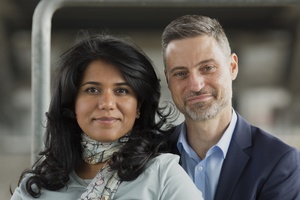Alphabet der Aufklärung – Über die Macht der Enzyklopädie
In the organizer's words:
Alphabet of Enlightenment - On the power of the encyclopaedia / Lecture, reading and discussion with Dr. Olaf Cless, Mirjam Wiesemann and Lutz Neumann
The rule has always been: knowledge is power, and whoever has the power to interpret knowledge is powerful.
In an illuminating double lecture, Olaf Cless, Mirjam Wiesemann and Lutz Neumann explore the enlightening power of the encyclopaedia, from Denis Diderot to contributions to Wikipedia by the Pastafarian author Joseph Capellini:
It was the largest and boldest project of the European Enlightenment of the 18th century: the Encyclopédie, edited by Denis Diderot and Jean-Baptiste d'Alembert.
The alphabetically arranged work was intended to unite all the knowledge of its time, presented by the best experts.
And despite arrests, bans, raids and ecclesiastical curses, as well as disputes among the authors themselves, the mammoth work was actually completed over the course of more than 20 years. In the end, it comprised 17 volumes of text with around 72,000 articles and 11 volumes with 3,000 copperplate engravings - a general journalistic attack on the hierarchical foundations of absolutist society and its prohibitions on thought. The alphabetical principle alone was tantamount to an affront: kings and cabbages suddenly shared a letter, saints and whores, God and money.
Olaf Cless & Mirjam Wiesemann embark on an alphabetical and historical journey through the Encyclopédie and show with how much ingenuity and erudition, cunning and irony the authors, always with censorship breathing down their necks, went about their work.
The second part of the evening uses the example of Wikipedia to show that the encyclopaedia has not lost its political power to this day and can contribute to a more informed public. In his entertaining presentation, Lutz Neumann describes how the platform helped to democratize public discourse by enabling everyone to present events, facts and people in public life comprehensively, verifiably and with all the (critical) facts for the first time.
Dr. Olaf Cless studied history and political science. He lives as a cultural journalist in Düsseldorf, writes regularly for the street magazine fiftyfifty and is active in the Heinrich Heine Salon e. V.
Mirjam Wiesemann is an author and actress. Born in Düsseldorf, she was the artistic director of the award-winning audio book series Künstler im Gespräch for 10 years and regularly gives readings.
Lutz Neumann is active on Wikipedia and in the secular scene, including with the research group Weltanschauungen in Deutschland (fowid).
DA! in cooperation with Heinrich Heine Salon
Moderation: Eva Creutz
Technical support: Ricarda Hinz
____________
Commitment needs supporters
Our work is voluntary and is financed by membership fees and donations. Donations go 100% towards the organization of new events and formats and help to anchor our topics in society.
If you like our work and want to help us continue it, you can support us:
Donation account: Düsseldorfer Aufklärungsdienst e. V.
IBAN: DE39 3005 0110 1007 8585 15 / BIC: DUSSDEDDXXX
Or simply here via PayPal
Humanist Salon: Since 2013, the DA! has regularly organized the Humanist Salon on the first Wednesday of the month. This is where urban society discusses philosophical, scientific and ethical issues. 50 to 100 visitors regularly gather in the Salon des Amateurs (bar in the Kunsthalle Düsseldorf) and online, as the salons have generally been broadcast live online since 2022. Questions submitted online by the audience are also integrated into the discussion following the lecture.
This content has been machine translated.Price information:
Free admission / donation appreciated













